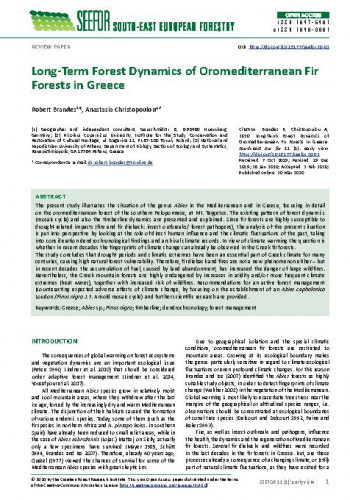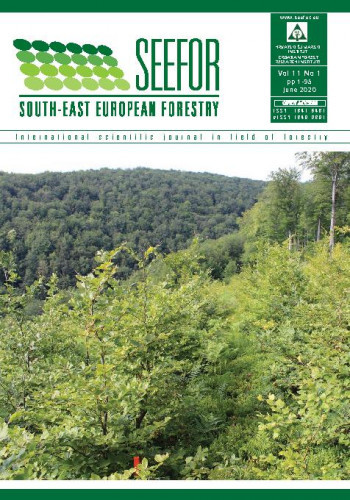The present study illustrates the situation of the genus Abies in the Mediterranean and in Greece, focusing in detail on the oromediterranean forest of the southern Peloponnese, at Mt. Taygetos. The existing pattern of forest dynamics (mosaic cycle) and also the timberline dynamics are presented and explained. Since fir forests are highly susceptible to drought-related impacts (fire and fir dieback: insect outbreaks/ forest pathogens), the analysis of the present situation is put into perspective by looking at the role of direct human influence and the climatic fluctuations of the past, taking into consideration dendrochronological findings and archival climate records. In view of climate warming the question is whether in recent decades the fingerprints of climate change can already be observed in the Greek fir forests. The study concludes that drought periods and climatic extremes have been an essential part of Greek climate for many centuries, causing high natural forest vulnerability. Therefore, fir dieback and fires are not a new phenomenon either – but in recent decades the accumulation of fuel, caused by land abandonment, has increased the danger of large wildfires. Nevertheless, the Greek mountain forests are highly endangered by increases in aridity and/or more frequent climate extremes (heat waves), together with increased risk of wildfires. Recommendations for an active forest management (counteracting expected adverse effects of climate change, by focusing on the establishment of an Abies cephalonica Loudon /Pinus nigra J. F. Arnold mosaic cycle) and further scientific research are provided.
Sažetak

 South-east European forestry : SEEFOR : international scientific journal in field of forestry : 11,1(2020) / editor-in-chief Ivan Balenović.
South-east European forestry : SEEFOR : international scientific journal in field of forestry : 11,1(2020) / editor-in-chief Ivan Balenović.